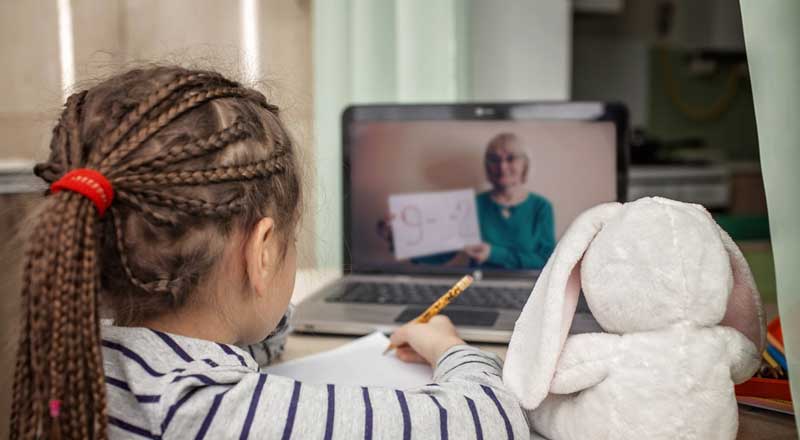Temper Tantrums. Moodiness. Nagging. An affinity for the word “no.” Welcome to toddler-hood. In fact, the behavior often associated with this stage makes this period even harder than puberty for some! But don’t worry; it’s not an impossible situation. In fact, if you know what’s happening inside your toddler’s brain, you can turn this into a terrific time for you and your baby.
In order to make this time, entering toddlerhood, easier for both you and your child, it’s important to understand what’s happening in your child’s brain and embrace what he is going through.
Age-Linked Leaps:
First things first: research has shown that babies make ten major, predictable, age-linked changes – or leaps – during their first 20 months of their lives. With each leap comes a drastic change in your baby’s mental development, which affects not only his mood, but also his health, intelligence, sleeping patterns and the “three C’s” (crying, clinging and crankiness).
In the first half-year of life, the three C’s get the better of the parents. Parents find themselves sleepless and frustrated, but they realize that their kid is just a baby who can’t help himself and therefore try to comfort him.
The leaps in the second half-year of life and through the first 20 months, however, are a little tougher for your child – and you.
In the second half-year, while parents tend to get irritated with the onset of leaps, they try to distract their child and for the most part, that works. But, a child in the second year of life doesn’t let himself be distracted by his parents and that results in periods with conflicts and sometimes even real arguments.
This is the rationale behind the extended edition of The Wonder Weeks, which helps parents ease into the second year and toddlerhood with their child. It’s at the ninth and tenth leaps (64 weeks and 75 weeks, respectively) that the biggest and most radical changes take place. Suddenly he is not a baby anymore, but a real toddler. He gets the ability to perceive and handle “principles.” It sounds difficult, but he can now get to a higher level of understanding than before.
And this means it’s time to lay down some ground rules because now, he is ready for them mentally. And, in doing so, parents can prevents their toddler from becoming a “Terrible Two” and flip it to a tremendous time.
Teenaging Toddlers:
It’s important to realize that this period, just like puberty with teenagers, is part of a normal development for toddlers. Don’t let it get to you too much and realize it will all blow over.
In order to make this time easier for both you and your child, it’s important to understand what’s happening inside his head and embrace what he’s going through. By understanding what is going on in the brain at the age of 64 weeks (ninth mental leap) and 75 weeks (tenth and last mental leap in infancy), you can moderate the behavior of your “teenaging toddler” and help him navigate this period of development.
Crossing the Bridge from Babyhood to Toddler-Time:
In the first year of life your baby’s brain has made huge and radical change eight times already. With each leap, you baby’s outlook on life changed drastically, and he entered a new perceptual world, so to speak. These new and strange worlds were scary for your baby and made him fussy at first. By one year of age your baby has conquered the worlds of “sensations,” “patterns,” “smooth transitions,” “events,” “relationships,” “categories,” “sequences,” and “programs.”
Around 15 months, your little one has a new ability to observe and handle “principles.” Because he has risen above the previous confines of “programs,” he has shed their rigid character. Before this leap of principles, our little helper was still bound by certain strict programs, which tended to be a tad mechanical in nature. Although he had learned what to do to achieve his goal, he always did it in the same sequence. He wasn’t able to adapt to circumstances. That will change after this leap of principles.
Welcome to Toddler-Time: From Theatricism to Temper Tantrums
For the first time, your child is now able to change programs he’s learned so far. And he loves playing with this. You can see how he varies the programs endlessly and studies all consequences of this. You can see how he does all kinds of “physical antics,” gets acquainted with the outdoors, starts to be more skillful with things and language, imitates others, role-plays daily life, practices emotions, starts to think ahead, starts nagging to get his way, starts to put on drama-play, starts to “demand” a vote, starts to be “aggressive,” can distinguish between mine and yours, starts being nice and placating to get on mom’s good side, starts to make jokes to get around the rules, starts negotiating and bargaining, starts experimenting with “yes” and “no,” starts to know how to get someone to do something for him, learns to do something together, wants to help in the household, and experiments with “thoughtless” vs. “careful.”
Time for Clear Rules!
When he has entered the world of principles, he yearns for rules. He is looking for chances to become familiar with them. Just like your kid deserves food everyday, he deserves rules, too. Most rules he can only discover when given by you. Social rules in particular are important. You have to show him what is correct and what is incorrect behavior. There is no harm in laying down the law. On the contrary, you owe it to him, and who better to do so than someone who loves him?
About the Author:
Frans Plooij, Ph.D is the author of the international bestseller The Wonder Weeks and one of the world’s top specialists in infant/child development and parent-baby interactions. His book, based on 35 years of extensive research, describes in easy-to-understand terms the incredible developmental changes that all babies go through during their first 20 months of life. Following Dr. Plooij’s advice and insight in the babies changing brain, parents all around the world have been better prepared – often within a week or two – for the often drastic behavior that marks a new change in their baby’s development, the new skills that emerge with each leap and how to get the most out of these wonder weeks. Visit www.thewonderweeks.com for more info.





